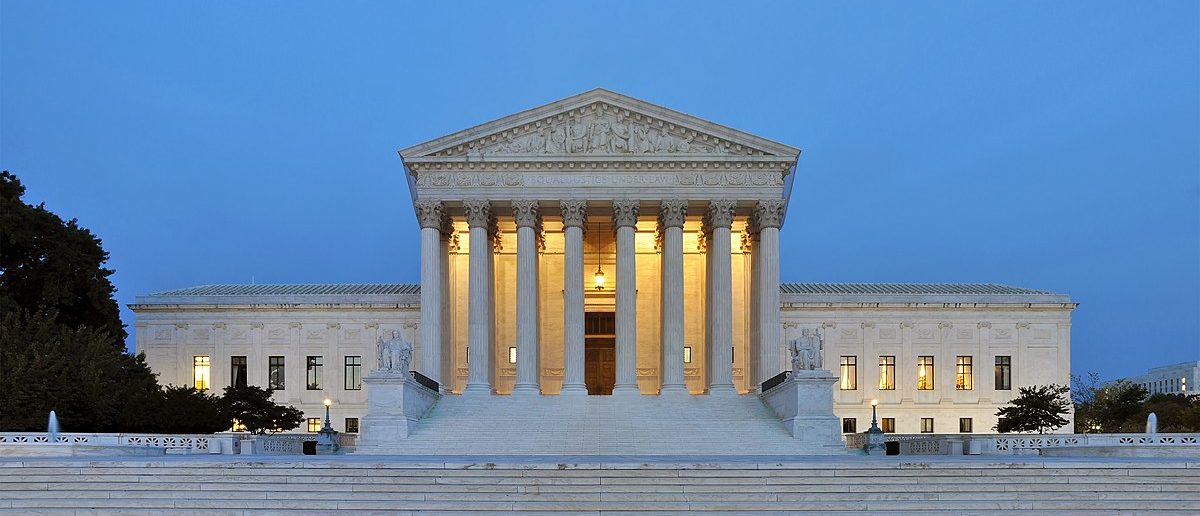Opinion
Some scientists advocate creating human bodies for ‘spare parts.’

From LifeSiteNews
The Stanford researchers admit that some people may find these ideas about clones repugnant but justify them on the basis of research already in progress.
In the 2005 sci-fi thriller The Island, Scarlett Johansson and Ewan McGregor discover that they are clones, created as an “insurance policy” for wealthy people who might need them for “spare parts.” Now, scientists at Stanford are proposing that we make this dystopian fiction a reality. On March 25, 2025, Carsten T. Charlesworth, Henry T. Greely, and Hiromitsu Nakauchi wrote in MIT Technology Review:
Recent advances in biotechnology now provide a pathway to producing living human bodies without the neural components that allow us to think, be aware, or feel pain. Many will find this possibility disturbing, but if researchers and policymakers can find a way to pull these technologies together, we may one day be able to create “spare” bodies, both human and nonhuman.
These researchers say that “human biological materials are an essential commodity in medicine, and persistent shortages of these materials create a major bottleneck to progress.” Using techniques reminiscent of Aldous Huxley’s Brave New World (in which fetuses destined for menial tasks are selectively poisoned to diminish their intelligence), they propose using human stem cells and artificial wombs to create human clones which they call “bodyoids.” The article describes it this way:
Such technologies, together with established genetic techniques to inhibit brain development, make it possible to envision the creation of “bodyoids”—a potentially unlimited source of human bodies, developed entirely outside of a human body from stem cells, that lack sentience or the ability to feel pain.
The researchers say that these neurologically impaired human clones could provide an almost unlimited source of organs, tissues, and cells for use in transplantation. They admit that some people may find these ideas repugnant but justify them on the basis of research already in progress. They correctly point out that we are already using neurologically injured people as research test subjects.
“Brain dead” people who are biologically alive but who have been declared legally dead are currently being used as test hosts for the implantation of genetically modified pig livers and kidneys. These brain-injured people who are being used as xenograft hosts are certainly alive (since they are stable enough to be used as test subjects for implanted animal organs) until they are killed at the end of the experiment for further anatomical and microscopic analysis. The Stanford scientists use this ethically problematic practice to justify creating human clones for research: “In all these cases, nothing was, legally, a living human being at the time it was used for research. Human bodyoids would also fall into that category.”
The scientists admit that human cloning raises ethical problems, saying that the use of bodyoids “might diminish the human status of real people who lack consciousness or sentience.” But the article is clearly written in the spirit of the ends justifying the means. In their call for action, the authors conclude, “Caution is warranted, but so is bold vision; the opportunity is too important to ignore.”
On the contrary, the value of every human being is what is too important to ignore. We value and protect every person because they are made in the image of God, regardless of the way they were brought into the world. Using unconscious people as research subjects is wrong, both in the case of brain-injured people declared “legally dead” (under the logical fallacy of brain death), and also with this new proposal for bioengineering human clones. Salve Regina University philosopher Dr. Peter J. Colosi explains it this way:
You, as the person who you are, exist even when you are not conscious, and this means that other human beings who are not conscious could also do that. In the branch of philosophy that I am calling Christian personalism, there have been many convincing arguments developed to show the reasonableness of the presence of a person in all classes of nonconscious or minimally conscious living human beings.
Also, it is wrong to create people with the sole purpose of using them to fulfill our own desires. Dr. Colosi makes this clear:
Furthermore, the creation of human beings with the deliberate intent to destroy some of them for the sake of others…is a clear example of what Pope Francis has referred to as “The Throw Away Culture”: The throwaway culture says, “I use you as much as I need you. When I am not interested in you anymore, or you are in my way, I throw you out.” It is especially the weakest who are treated this way — unborn children, the elderly, the needy, and the disadvantaged.”
Creating people to be used as commodities for “spare parts” is unconscionable. Do we really want to be spending our taxpayer dollars this way? Yet Stanford Medicine’s Center for Clinical and Translational Research and Education just received a $70 million NIH grant. The purpose of this grant is to “accelerate the translation of newly discovered biomedical treatments into interventions that improve patient care and population health.”
READ: The case of Zack Dunlap shows the incoherence of ‘brain death’
Rather than accelerating, we need to stop, expose, and defund these morally abhorrent attempts to purposely bioengineer neurologically impaired human clones as a source of “spare parts.” A pro-life ethic protects all human life from experimentation and abuse.
Heidi Klessig MD is a retired anesthesiologist and pain management specialist who writes and speaks on the ethics of organ harvesting and transplantation. She is the author of The Brain Death Fallacy, and her work may be found at respectforhumanlife.com.
espionage
From Sidewinder to P.E.I.: Are Canada’s Political Elites Benefiting from Beijing’s Real Estate Reach?

Garry Clement: Politicians even appeared to benefit from the relationships cultivated with Chinese officials and members of Bliss and Wisdom
Editor’s Note:
This opinion column by Garry Clement analyzes a deeply reported investigation into the land acquisitions and foreign affiliations of the Bliss and Wisdom Buddhist group in Prince Edward Island. Clement argues that the federal government, law enforcement, and Canadian officials have failed to confront what he sees as a growing national security risk—including strategically significant purchases of critical agricultural land.
His warning is underscored by a recent CBC/Radio-Canada investigation, which examined Bliss and Wisdom’s extensive land holdings, financial networks, and reported ties to the Chinese Communist Party’s United Front Work Department—allegations the religious group denies.
That probe featured findings from Clement, former CSIS officer Michel Juneau-Katsuya, and publisher Dean Baxendale—all co-authors of the forthcoming book Canada Under Siege, which devotes entire chapters to these Prince Edward Island land dealings.
Readers should understand a crucial piece of context: Clement, a former senior RCMP officer, and Michel Juneau-Katsuya were central figures in the joint RCMP-CSIS Sidewinder investigation of the 1990s. That probe examined how the Chinese Communist Party was infiltrating Canada’s economy—most notably through massive and suspicious real estate acquisitions in Vancouver and Toronto. Parallel investigations, including the RCMP’s Project Sunset, examined Beijing’s growing influence over Vancouver’s ports and critical infrastructure. Yet despite their explosive findings, these intelligence probes were buried or gutted. Now, more than two decades later, the same warning signs are surfacing in pastoral Prince Edward Island—and once again, the threat is being ignored.
The Bureau is a reader-supported publication.
To receive new posts and support my work, consider becoming a free or paid subscriber.
OTTAWA — When our investigative team began looking into the Bliss and Wisdom Buddhist organization’s activities on Prince Edward Island, we expected a quiet story of land development and foreign investment. What we uncovered instead was a chilling portrait of political complacency, potential foreign influence, and the fragility of democratic accountability in Canada.
Over the course of our work, we tracked millions of dollars in unexplained cash inflows from Taiwan and mainland China, funneled through Canadian banks and into real estate and development projects across PEI. These were not obscure transactions—they were significant and frequent enough to raise alarms in any functioning system of democratic oversight.
And yet, those alarms never sounded.
Neither local politicians nor federal leaders lifted a finger. Some even appeared to benefit from the relationships cultivated with Chinese officials and members of the Bliss and Wisdom organization, whose quiet influence grew in tandem with land purchases and political access. The very leaders entrusted to safeguard transparency and public interest were, at best, disengaged, and at worst, complicit.
The RCMP, for its part, has thus far declined to launch a public investigation—a silence that is deafening, particularly in light of recent national debates about foreign interference in Canadian politics. How can we claim to take such threats seriously if a clear case of questionable foreign financial involvement in one of our provinces is allowed to pass without scrutiny?
What made this investigation even more revealing was the contrast between institutional inaction and the commitment of ordinary citizens. Residents of PEI, concerned about unchecked land acquisitions, foreign influence, and environmental stewardship, were the first to sound the alarm. They provided testimony, documents, and moral courage. They believed that Canada’s democratic institutions should still function as intended—on behalf of the public, not in service to silence or convenience.
In a time when democratic erosion often feels like a faraway problem, PEI is a case study of how it happens at home: not through coups or grand conspiracies, but through the quiet neglect of responsibility, the normalization of secrecy, and the sidelining of civic duty.
Our investigative team did what governments refused to do. We followed the money. We asked hard questions. We connected the dots. And while we do not claim to have all the answers, we believe this is precisely the kind of work that institutions—law enforcement, media, elected officials—should have done long ago.
Democracy doesn’t collapse overnight. It erodes when those in power forget who they serve. But it also endures, stubbornly, through the vigilance of citizens who refuse to look away.
It is time for accountability—not just from those involved with Bliss and Wisdom, but from the public servants who allowed this to happen under their watch.
Former senior RCMP officer Garry Clement consults with corporations on anti-money laundering, contributed to the Canadian academic text Dirty Money, and wrote Canada Under Siege, and Undercover, In the Shady World of Organized Crime and the RCMP
The Bureau is a reader-supported publication.
To receive new posts and support my work, consider becoming a free or paid subscriber.
Invite your friends and earn rewards
Daily Caller
Unanimous Supreme Court Ruling Inspires Hope For Future Energy Project Permitting


From the Daily Caller News Foundation
It comes as a surprise to many Americans when they learn that the vast majority of decisions issued by the U.S. Supreme Court are decided unanimously. Far too often, these unanimous decisions receive scant attention in the press due to their lack of controversy.
Such is the case with a key 8-0 decision the Court published May 29 that could help Congress and the Trump administration meet their goals to streamline permitting for energy projects in the United States. The decision narrows the scope of application of the National Environmental Policy Act (NEPA), a law whose environmental review provisions have been systematically used – and often abused – by climate alarm groups and plaintiff lawyers for decades to impede the progress of major projects of all kinds.
The case at hand involves the Uinta Basin Railway Project, which will transport oil produced in Utah’s Unita Basin and connect it to the national railway network so it can reach national markets. Because the rail line would parallel the Colorado River for roughly 100 miles, the D.C. Court of Appeals ruled in 2023 that the project’s developers would have to conduct a second, expanded environmental impact study under NEPA to try to assess nebulous potential impacts to air quality – often taking place thousands of miles away – or from a possible oil spill, rescinding a key permit that had been issued in 2021 by federal regulators.
Dear Readers:
As a nonprofit, we are dependent on the generosity of our readers.
Please consider making a small donation of any amount here.
Thank you!
It is key to note that that permit was issued by the federal Surface Transportation Board (STB) along with a 3,600-page environmental impact statement to comply with NEPA. In the conduct of the environmental review, the Wall Street Journal wrote that STB and the company assessed “the railway’s potential effects on local water resources, air quality, protected species, recreation, local economies, the Ute Indian tribe and much more.”
But for the plaintiffs and the D.C. Circuit Court, 3,600 pages of thorough scientific analysis just weren’t enough. They filed suit, complaining that the study didn’t try to assess potential impacts that might happen on dozens of other rail lines hundreds of miles distant, or, even more absurd, assess potential pollution in “environmental justice communities” as far away as the Texas and Louisiana Gulf Coast.
You really can’t make this stuff up.
If delay was the goal, the plaintiffs got a win, halting progress for four years. That is a sadly typical outcome for cases involving energy-related projects such as this one.
In their unanimous opinion written by Justice Brett Kavanaugh, the justices state, “The goal of the law is to inform agency decisionmaking, not to paralyze it.”
As I’ve written in previous stories, the vast majority of delays in permitting processes stem from provisions contained in major federal statutes designed to protect the environment and endangered species. In addition to NEPA, these laws include the Clean Air Act, the Clean Water Act and the Endangered Species Act. Among them all, none has been more broadly abused and misinterpreted by activist courts than NEPA.
In its analysis of the decision, the Institute for Energy Research says, in part, that the “decision means that agencies can approve projects like pipelines, railways, and dams and not be mandated to consider distant environmental effects of the projects, such as increased greenhouse gas emissions, that had stopped or delayed fossil fuel projects from moving forward, particularly during the Biden administration.” But, the author cautions, “the Uinta Basin Railway project could still face additional legal and regulatory hurdles within Colorado,” despite the ruling.
The good news is that even the liberal justices on the Supreme Court appear to be developing a growing awareness of just how absurd some of the claims made in lawsuits like this case really are. The unanimous nature of this decision inspires some sense of hope that the Trump administration can succeed in some of its efforts to reform the system and put an end to some of the most unjustified delays.
David Blackmon is an energy writer and consultant based in Texas. He spent 40 years in the oil and gas business, where he specialized in public policy and communications.
-

 Alberta20 hours ago
Alberta20 hours agoUnified message for Ottawa: Premier Danielle Smith and Premier Scott Moe call for change to federal policies
-

 Alberta1 day ago
Alberta1 day agoCentral Alberta MP resigns to give Conservative leader Pierre Poilievre a chance to regain a seat in Parliament
-

 Alberta2 days ago
Alberta2 days agoAlberta health care blockbuster: Province eliminating AHS Health Zones in favour of local decision-making!
-

 Daily Caller1 day ago
Daily Caller1 day ago‘Not Held Hostage Anymore’: Economist Explains How America Benefits If Trump Gets Oil And Gas Expansion
-

 Alberta1 day ago
Alberta1 day agoAlberta pro-life group says health officials admit many babies are left to die after failed abortions
-

 Business19 hours ago
Business19 hours agoCanada’s critical minerals are key to negotiating with Trump
-

 International12 hours ago
International12 hours agoJudiciary explores accountability options over Biden decline ‘coverup’
-

 Alberta1 day ago
Alberta1 day agoCalls for a new pipeline to the coast are only getting louder







